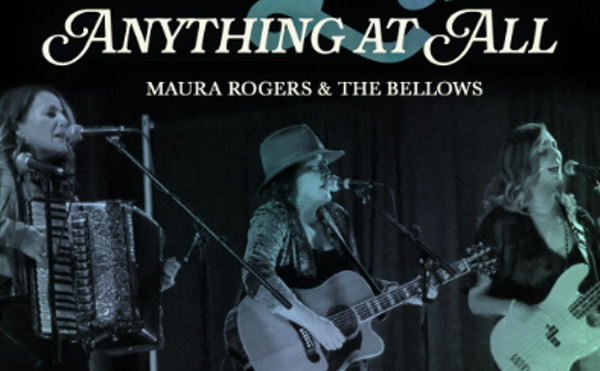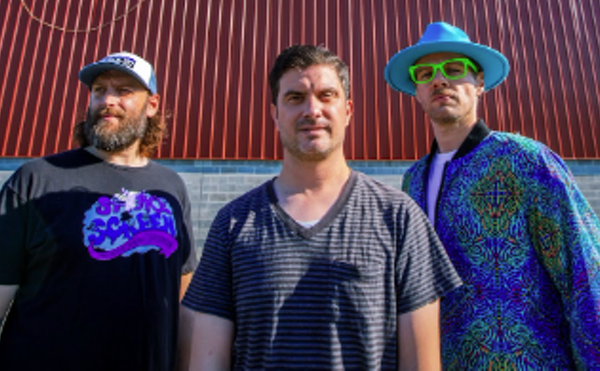For the past 13 years, prog rockers Trans-Siberian Orchestra (TSO) have toured in support of the same album, 1996's Christmas Eve and Other Stories. Granted, the theatrical shows have shifted to include bigger and better visuals, but the content hasn't really changed. This year, however, the tour features the live debut of 2004's The Lost Christmas Eve, a concept album about a businessman who abandons his newborn son. Trans-Siberian founder Paul O'Neill recently phoned in to talk about the decision to try something different.
Your first album, 1996's Christmas Eve & Other Stories, didn't immediately connect with listeners. What was the key to its becoming a hit?
To me, the unquestionable thing was that it was when we started touring in 1999 that the band started to explode. I was so old school, so there was no lip-syncing and tapes; it was totally live. When I started Trans-Siberian Orchestra, since they're rock operas, the vocal had to fit the character. If I need a Joe Cocker-like voice, I had it. If I needed a female soprano, I had it. The prog rock bands I admired who used to have huge choir sections on their albums would go to a tape or skip that part when they played live. I worshipped Queen, but when I saw them live, they would never do the middle of "Bohemian Rhapsody." I would carry enough lead singers, even though it was expensive, so that we could do that kind of stuff. I have a few guidelines. The first is that the fans own the band. Our job is to make the best possible albums at whatever the price. The second rule is to do no damage to the lead singer. About 15 or 16 years ago, I was with a friend from a very big group who was having a [vocal cord] node operation. The doctor was coming out of surgery and he said he didn't understand the industry. He said, "Vocal cords are thin tissue muscles. They're not designed to sing two hours a day, five nights a week over Marshall amps. It's not a matter of if these guys are going to ruin their voices. It's just a matter of when." The node operation is like flipping a coin. The labels would throw these bands out there, and when you lost your voice, you lost a singer. With Trans-Siberian Orchestra, we have so many lead singers that no singer has to sing more than five songs a night, and that you can do until you're 80. In TSO, there are so many singers on the flight deck, if somebody goes down for a night, there is somebody who can take their place. I wanted it to be musically driven rather than celebrity-driven. I think that got out of control in the '80s, especially with MTV.
You're a big advocate of using state-of-the-art technology. Talk about the technical side of this year's show.
We have these catwalks that lower into the arena, and every year we up the ante. In rock, the general rule is that when a show gets to a certain size, you go to leap-frogging systems, so that when you're playing one city, a second crew comes to set up the next show. In 2008, it had gotten so big that I had to go to leapfrogging systems. I wanted to keep the ticket price low, so I said I would rehearse so well that we could do two shows in one day and I could do it affordably. I don't know how we did it, but we did it. We don't have leapfrogging systems. The crew has been with us since day one, and we consider them band members. The fact that they can do what is seemingly impossible is something we take pride in. They're as important as anyone on the flight deck and the band knows it, and they are treated as such. So far, it's worked out better than we anticipated.
And you're playing 2004's The Lost Christmas Eve this year for the first time. How has that been?
The agents were freaking out, but we never intended to tour the first rock opera for 13 winters in a row. It just happened. They told me it was tradition and not "broke," so there was no need to fix it. It was a gut instinct that the story behind Lost Christmas Eve would resonate with our fans. The underlying theme of the first album is, look out for each other and be kind. The underlying theme for Lost Christmas Eve is hope and redemption, and it's never too late to change and turn your life around. I've always been fascinated about Dec. 24. It allows human beings to undo their mistakes. If you live long enough, something about it makes you pick up the phone and call that person and say, "I don't know what we were fighting about. Let's hit "reset." In 2004, when I was writing it, I was thinking about the biggest mistake you could make, which is abandoning your newborn child. Ironically, the main character in the story is this multibillionaire banker who abandoned his child, and 40 years later is in New York trudging through the snow, and he's able to undo that mistake. And just like any of my stories, if it's not happy, it's not the ending. You get enough sad endings just watching the news.
One criticism I've heard is that the show features too many power chords. How do you respond to that? Isn't that like saying a candy bar is too sweet?
The only thing I can say is that we have to be doing something right. We're number 2 for most tickets sold in North America and number 8 in the world. You'll always have someone who will complain. Jesus Christ could arrive tomorrow, and somebody will be looking for a board of nails. You look at the demographics and how long it's lasted, and we're doing something right. There are power chord songs because I love power chord songs. You look at some of these songs, and there aren't power chords anywhere. That's all virtuosity. It's all about the musicianship, and we're well enough now into the tour that it's doing great. It's way ahead of last year, and fans are embracing it. It was the right move. Now I have to see if I can return those Tums to the pharmacy.











